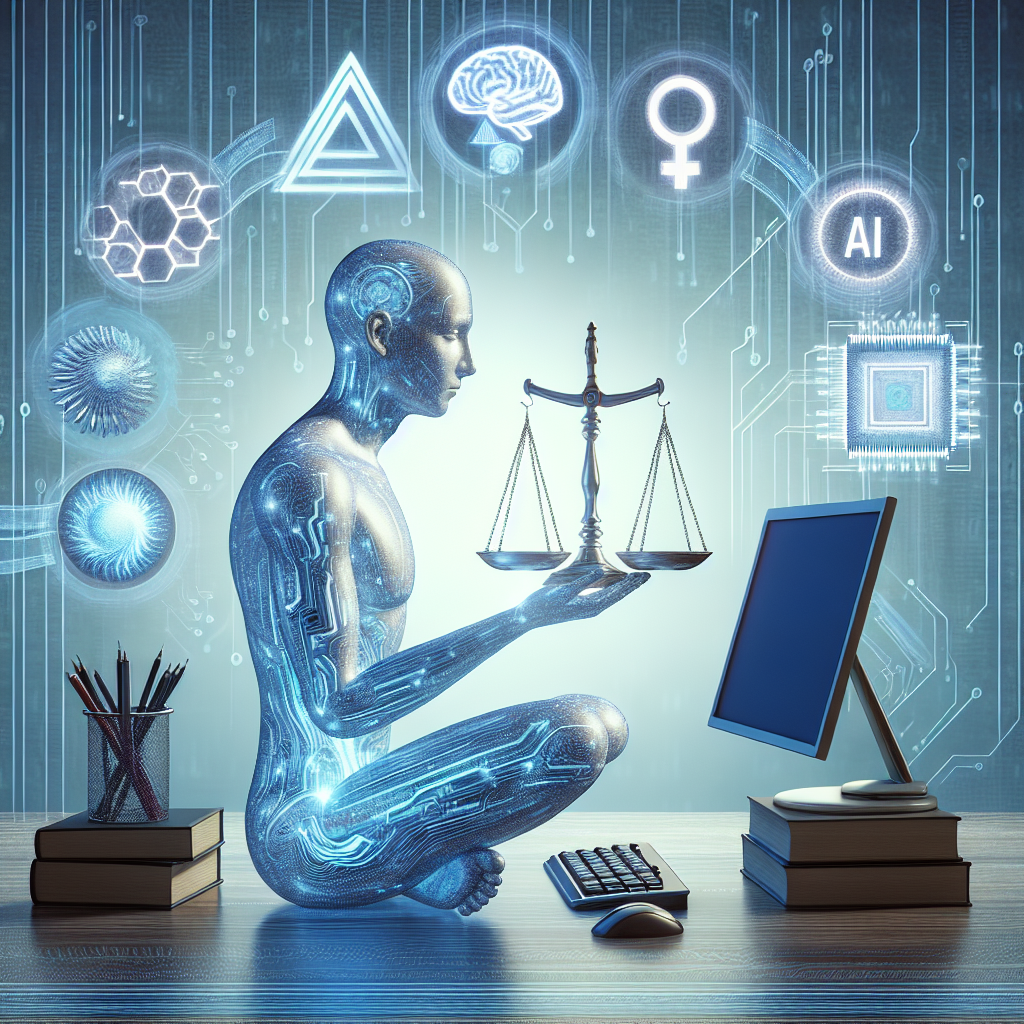Artificial intelligence (AI) has become an increasingly prevalent tool in various industries, including education. AI platforms in education testing have the potential to revolutionize the way students are assessed and provide valuable insights for educators. However, the use of AI in education testing raises ethical considerations that must be carefully addressed to ensure fair and equitable outcomes for all students.
One of the key ethical considerations of AI platforms in education testing is the potential for bias in the algorithms used to score assessments. AI algorithms are only as unbiased as the data they are trained on, and if the training data is biased, the algorithm’s outputs will also be biased. This can result in certain groups of students being unfairly advantaged or disadvantaged by the AI scoring system.
For example, if the AI platform is trained on data that is predominantly from one demographic group, it may not accurately assess the performance of students from other demographic groups. This can lead to students from underrepresented groups being unfairly penalized or overlooked in the assessment process.
To address this ethical concern, it is essential for educators and developers to carefully consider the training data used to create AI platforms in education testing. This includes ensuring that the training data is representative of the student population and free from bias. Additionally, regular audits of the AI scoring system should be conducted to identify and correct any biases that may arise.
Another ethical consideration of AI platforms in education testing is the potential for privacy violations. AI platforms often collect large amounts of data on students, including personal information, test scores, and learning patterns. This data can be highly sensitive and must be protected to prevent unauthorized access or misuse.
Educators and developers must take steps to ensure that student data is securely stored and only accessed by authorized personnel. This includes implementing strong encryption measures, regularly updating security protocols, and obtaining explicit consent from students or their guardians before collecting any personal data.
Furthermore, it is essential for educators to be transparent with students about how their data will be used and to provide them with options to opt out of data collection if they choose. By prioritizing student privacy and data security, educators can ensure that AI platforms in education testing are used ethically and responsibly.
In addition to bias and privacy concerns, another ethical consideration of AI platforms in education testing is the potential for automation to replace human judgment and decision-making. While AI can provide valuable insights and streamline the assessment process, it is essential for educators to maintain a human-centered approach to education testing.
Human judgment and empathy are essential in understanding the unique needs and abilities of individual students, and educators must be careful not to rely too heavily on AI platforms at the expense of personalized attention. AI should be used as a tool to augment, rather than replace, human judgment in education testing.
Educators should also be mindful of the potential for AI platforms to perpetuate inequalities in education. For example, if students from affluent schools have greater access to AI testing resources than students from low-income schools, this can exacerbate existing achievement gaps. Educators must work to ensure that AI platforms are accessible to all students, regardless of their socioeconomic status.
Frequently Asked Questions:
Q: How can educators ensure that AI platforms in education testing are unbiased?
A: Educators can ensure that AI platforms are unbiased by carefully selecting training data that is representative of the student population and free from bias. Regular audits of the AI scoring system should also be conducted to identify and correct any biases that may arise.
Q: What steps can educators take to protect student data in AI platforms?
A: Educators can protect student data by implementing strong encryption measures, regularly updating security protocols, and obtaining explicit consent from students or their guardians before collecting any personal information. It is also important to be transparent with students about how their data will be used and to provide them with options to opt out of data collection.
Q: How can educators balance the use of AI platforms with human judgment in education testing?
A: Educators can balance the use of AI platforms with human judgment by using AI as a tool to augment, rather than replace, human judgment in education testing. Human judgment and empathy are essential in understanding the unique needs and abilities of individual students, and educators must be careful not to rely too heavily on AI at the expense of personalized attention.

